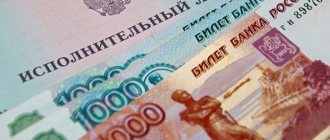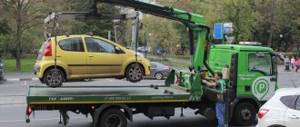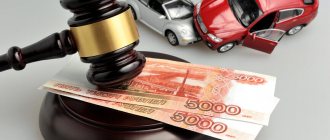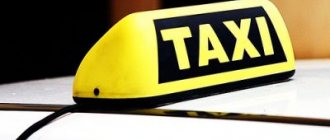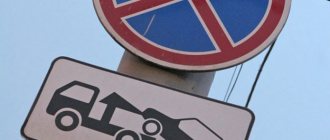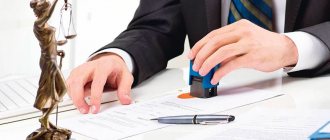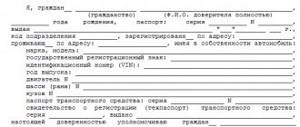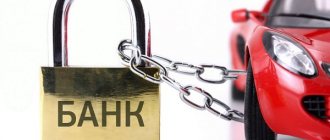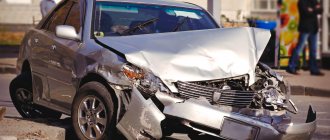What does the term “vehicle arrest” mean?
A car seizure is a type of property seizure. In other words, the seizure of a vehicle limits the owner’s rights to use the car.
At first glance, the above formulation does not pose any particular difficulties for perception. However, car seizure is one of the most confusing legal areas because this type of punishment is applied by different authorities and, accordingly, is regulated by different legislative acts.
Which authorities can seize a vehicle?
Any car can be simultaneously considered:
- an object of increased danger, which requires compliance with strictly defined rules of design and use;
- property that has a high value, which can be used to ensure various compensations and obligations.
Based on the above definitions, the following government agencies can impose restrictions on a car:
- Bailiff service and courts at various levels;
- traffic police;
- investigative authorities;
- customs departments and tax inspectorates.
What does arrest of a vehicle mean?
Restricting a vehicle in the form of a seizure can have various consequences. In this situation, very often even officials confuse the levels and types of sanctions applied.
The thing is that with the concept of “arrest” many motorists generalize several completely different penalties:
- detention of a vehicle;
- ban on exploitation;
- restriction of any registration actions.
Since only the last point relates to the topic under discussion, and the drivers themselves call it an “arrest,” let’s look at it in more detail.
Limitation of registration actions
Restriction of registration actions in other words is called arrest of the right to any type of property disposal. Each of these concepts means the same thing - the imposition of a restriction, and sometimes a ban, on the owner’s right of ownership in relation to his vehicle. In this case, the owner cannot carry out a single registration operation with the car, or even undergo a technical inspection.
The imposition of arrest sanctions occurs through a court order and only after notification of such a decision by traffic police officers.
However, there are several exceptions when a ban can be imposed without a court decision.
- Damage to vehicle identification plates. In this situation, the traffic police independently decides on the imposition of sanctions.
- Execution of a court decision by executors (not for all cases).
- Raids carried out jointly by the FSSP and the State Traffic Safety Inspectorate to identify persistent fine defaulters.
Most cases of seizure of a car are related to the financial component.
This measure can be used as:
- coercion to pay existing debts;
- provisional procedure of courts on issues related to property disputes;
- problems due to seizure sanctions on the buyer’s car.
Problems associated with the seizure of a car may arise not only for the owner who was at fault. There are often cases when the newly minted owner of a problem car suffers from sanctions.
The main reasons why a new vehicle owner faces seizure are:
- ignorance of the former owner of the car about the imposed sanctions;
- dishonesty of the car seller;
- mistakes by officials.
In the first case, when the old owner is subject to certain obligations or penalties for payments, he may not even be aware of it.
Most often, this situation arises when receiving a fine from an automatic system for recording violations. The second option is if the car is resold by resellers and it has not been registered. If the transaction was concluded with a seller who did not know about the imposition of encumbrances, then through joint efforts the arrest can be lifted very quickly and without unnecessary complications. When the transaction was carried out through a reseller, the chance of finding the former owner and trying to come to an agreement with him was reduced to zero.
The most difficult case will be when the former owner knows about the seizure of the car and, by selling it, tries to shift the problem to another person.
In such a situation, dishonest car owners disappear immediately after signing the contract in the best traditions of the world's magicians. But the buyer can only spend a long time knocking on the thresholds of various authorities in search of justice and return of the amount spent.
Can property subject to confiscation be seized until a court decision?
Many participants in criminal proceedings often have questions related to the seizure of property before the court makes a final decision on the case. In order for the courts to interpret the law uniformly, the Supreme Court clarified that property may be seized before a court decision is made within the framework of 115 of the Code of Criminal Procedure of the Russian Federation (Seizure of property) in order to ensure the execution of a future sentence.
Can property held by other persons who are not suspects, accused or persons legally liable for their actions be seized?
Yes, that may be the case. According to Part 3 of Article 115 of the Code of Criminal Procedure, property can be seized before a court decision even if it is located not only in the possession of the suspect, accused or a person legally liable for their actions, but also in the possession of other persons. True, such an arrest is possible if there are sufficient grounds to believe that this property was acquired as a result of criminal acts or was used (in the case of an attempted crime, intended) for use as a crime weapon.
It is noteworthy that property can be seized even if the suspect’s identity has not been established within the framework of a criminal case.
That is, in other words, the same car that was previously used to commit a crime (or attempt to commit a crime) can be seized even if it is in the possession of a person not involved in the crime at the time the criminal case is initiated. Also, as you already understand, this car may subsequently be confiscated.
Can a car or other property be confiscated from the property of a person who did not know that the property was obtained as a result of a crime or was used to commit a crime?
No, according to the clarifications of the Supreme Court of the Russian Federation, confiscation of property under Article 1041 of the Criminal Code of the Russian Federation can be imposed on property (including a vehicle) belonging to a person not brought to criminal liability only after a comprehensive examination by the courts of evidence that this person knew or should have known that the property was obtained as a result of a crime or had previously been used to commit a criminal offense.
How to find out if a car is under arrest
Before you purchase a vehicle, you must perform a penalty check. This can be done online using free access to open databases on special websites.
These are the resources:
- State Road Safety Inspectorate—State Traffic Safety Inspectorate;
- Federal Bailiff Service - FSSP;
- Federal Notary Chamber.
However, even performing these steps will not give a 100% guarantee of the “cleanliness” of the car. The problem is that when the judiciary makes a decision, the data is entered into the database only after several weeks. According to the latest resource, not all credit organizations and banks provide data to the database.
How to avoid having your car seized by bailiffs
If the vehicle was seized by representatives of the judicial authorities, the driver has the opportunity to avoid the seizure of the vehicle. Such evasion of payment obligations is impossible if the car is pledged to a credit institution. The essence of the actual preservation of the car is the legal disposal of possession of movable property.
The fact is that government officials do not have the right to seize a car that does not belong to the debtor. However, there are some exceptions to this rule. The driver should familiarize himself with all the intricacies of this issue in order to avoid unpleasant situations.
According to the current regulations of the Russian Federation, it is possible to cease acting as the owner of a vehicle in two ways:
- sale of a vehicle;
- donation of a car.
As a third and least common option, it is possible to transfer movable property for use on a lease basis. In this case, the funds paid for the use of the vehicle will be used to pay off the debt.
The main nuance of getting rid of a car is that representatives of the law may suspect the motorist of illegally or specially transferring the vehicle. Bailiffs reasonably suspect motorists of transferring rights to a car in order to avoid liability for debt.
To recognize a transaction as fictitious (in other words, illegal), bailiffs send a corresponding application to the judicial authority. In this case, unpleasant consequences await the buyer who purchased the car, from whom the encumbered car will be taken away.
If the car is seized after the enforcement proceedings come into force, the transaction will be declared invalid. A similar outcome of the event will also be applied during the sale after the bailiff service has issued a ruling.
As evidence of the cancellation of the transaction, the court may use the facts that the driver continues to use the sold or donated car. The presence of family or other close ties between the subjects of the purchase and sale or donation agreement may also be grounds for cancellation of transactions.
The remaining options for avoiding liability in the form of paying off debts by selling a vehicle are presented in the following ways:
- hiding a car somewhere;
- dismantling the vehicle into its component parts and handing over the vehicle to the bailiffs, including only the body.
These methods may be used under certain circumstances. However, in most cases, a motorist cannot count on the success of dismantling or hiding the vehicle. The best protection against car repossession remains timely repayment of the debt and fulfillment of all established obligations.
How can you solve the problem of vehicle seizure if you are a buyer?
Since 2013, when the law simplified the purchase and sale procedure as much as possible, transactions of this kind have become possible to carry out in a free form and without the participation of the traffic police.
That is, during the re-registration of the car, the presence of the previous owner became optional. This decision has many positive aspects. However, it allowed unscrupulous sellers to become more active.
If the purchased car is seized, there is no need to panic. There are many different ways to solve problems. True, most of them will require trouble and time.
What not to do when buying a car
First of all, it is worth mentioning a few simple rules, using which you can minimize the risk of buying a car burdened with sanctions.
It is imperative to conduct a full check of the legal purity of the purchased vehicle. There is no need to make exceptions even when the seller reduces the price as much as possible and asks to complete the transaction as soon as possible.
The transaction must be formalized as strictly and competently as possible. The contract must contain a clause stating the absence of restrictions. In addition, the agreement itself must be accompanied by a financial receipt and an acceptance certificate.
The fields in the contract intended for signatures must be filled out on all pages. Signatures must be handwritten and correspond to the sample found in the civil passport.
Particular attention should be paid to the moment if the purchased car has already been owned by several owners. In this case, you need to question the owner in detail, study the title and carefully read the database data on online services.
There is no need to be shy, and it is better to ask the seller for permission from your spouse, if you have one. It will be very suspicious if the owner offers an increased discount instead of a document.
You should avoid dubious sales schemes: by proxy or through resellers who do not have contacts of the old owners.
Deliberately underestimating the transaction amount is a step that cannot be taken, because according to a court decision, what is specified in the contract is paid.
Be sure to keep current contact details of the old owner of the car.
It is ideal if the owner is personally present at the traffic police during re-registration.
If the purchased car has encumbrances, and the seller has notified about this, then the terms of the sanctions must be fully described in the contract.
What to do if you bought a mortgaged car
The most unpleasant situation: the new owner not only discovered that he bought a mortgaged car, but also found out that the former owner did not pay his debts for it and there is no way to call him to decency and force him to pay off his debts.
Due to the debts of the previous owner, the credit institution may demand the return of the collateral. Or if the new owner decides to collect money from the previous owner to pay off the lien in court, the court may decide that the car will be sold, and the proceeds from this sale will be paid towards the debt.
The new owner most often has to deal with the deposit. And in order not to be left with nothing, to keep the car and terminate the pledge, he must know some of the features of this case. In particular, he will need to support his good faith with evidence, that is, the fact that at the time of making the purchase he did not know that the car was the subject of collateral.
It is important to note here that if the purchase and sale transaction took place before July 2014, the court will not take into account the buyer’s good faith. However, if the purchase took place after this date, then, according to Article 352 of the Civil Code of the Russian Federation, if the buyer did not know that he was buying a pledged item, the pledge will be terminated.
The court also considers how quickly the owner registered the lien. This is important because if the owner not only registered the pledge, but also reported it to the notary, then he can legally object to the court terminating the pledge due to the buyer's good faith. However, according to Article 339.1 of the Civil Code of the Russian Federation, if the pledge was registered in the Register of Notifications of Pledge of Movable Property, then the new buyer of the car has almost no chance of being recognized as a bona fide purchaser and keeping the purchased car with him. If such information is not recorded in the Register, then the buyer has the opportunity to retain his right to the repurchased car.
Also, an important point when buying a car secondhand is not only the transfer of the title (the original document or its copy), but also the conditions specified in the purchase and sale agreement, as well as the cost of the car indicated in it, which by law should not be lower than the market value . It is possible that the contract has already indicated that the car being resold is the subject of collateral. It is also important to remember that an agreement registered with the State Traffic Inspectorate cannot be considered as confirmation of the buyer’s good faith. After all, the traffic police is not only not obligated by law to check resold cars to see if they are pledged, but also cannot do this, since it does not have access to the Register database.
In order not to receive a headache in the form of this deposit along with the purchased car, the buyer must check the “cleanliness” of the car. This can be done by requesting information from the Register of Notices of Mortgage of Movable Property. In addition, you can find specialized services on the Internet that allow you to check the credit history of your car and find out whether it is pledged to the bank.
What to do if your car is seized by a bank?
To achieve justice, in this case it is worth resorting to the help of lawyers or an experienced legal representative, because the solution to such an issue can turn in any direction.
To open a case, it is enough to apply to the court to remove sanctions from personal property.
The basis for such an appeal is Article 352 of the Civil Code of the Russian Federation, which gives the buyer a chance to challenge ownership. The success of the case is possible if the court recognizes the transaction as a bona fide purchase by a person who did not know about the encumbrances of the car at the time of its sale. However, the buyer himself will have to prove the above fact and it is extremely difficult to do this on his own. This is where you will need the help of a lawyer.
In addition, the moment of imposing restrictions is also important in this matter.
- If the arrest came into force several days after the agreement was signed, then the matter will be resolved positively.
- If the seizure occurred before the purchase of the car, then winning in court becomes problematic.
What restrictions arise
When a vehicle is arrested, a special act is drawn up with the participation of witnesses
One of the purposes of the preventive measure is to prevent the destruction, damage, or sale of the car. Quite often, they learn about the imposition of restrictions when they try to register or deregister a car, re-register a vehicle to another person, or draw up a power of attorney to drive a vehicle. These actions in the presence of arrest are impossible even if the associated fees have already been paid.
If the arrest is an interim measure of judicial proceedings
If the car has become the subject of any property dispute, then, based on a court decision, temporary restrictions may be imposed on it, which last until the final decision is made. What to do if a car is seized by bailiffs?
This kind of arrest is imposed only by a special court order, which can be canceled or appealed. However, the course of action will depend on the status of the person in the case.
- If the property dispute does not concern the buyer of the car, then the restrictions can be lifted in accordance with Article 442 (clause 2) of the Code of Civil Procedure of the Russian Federation. In this case, the case will be considered in a separate proceeding and all parties must take part in it.
- If the buyer is a party to a legal dispute, then the seizure can be canceled under Article 144 of the Code of Civil Procedure of the Russian Federation. In this case, the decision will be made in the main proceedings.
In what cases can a car be confiscated?
Author of the article: AutoKontact.ru
date: 07.18.2019
Quite recently, a message appeared on the Internet that the police will consider confiscation of personal cars from those drivers who have repeatedly been caught for drunk driving.
A similar bill is under consideration by the government and a decision on it will be made soon. But before its adoption, do traffic police officers have the opportunity to confiscate cars from such owners?
It is worth looking for such information in the Code of Administrative Offenses. According to one of its articles (3.7), more precisely its first part, confiscation is understood as the seizure of an item with the help of which an administrative offense was committed, unless it is withdrawn from circulation.
Such things become the property of the Russian Federation. Especially if the vehicle served as a means for money laundering and smuggling.
In other words, confiscation does not equate to the evacuation of a car to an impound lot. It's not even an arrest. In such a case, your car will no longer belong to you, and it will not be possible to remove the confiscation conditions from it. That is why confiscation is something more than an ordinary seizure of property or the imposition of restrictions on its circulation in economic life.
It is worth remembering that confiscation of property can only be ordered by a judge. Situations in which property may be confiscated include the owner's debts. It is confiscation that acts as one of the methods for collecting funds, according to enforcement proceedings. For example, after a traffic accident, all conditions were not fully satisfied by the injured party.
Then she sues whoever was at fault for the accident. In case of a positive decision of the court and in the absence of funds to pay such conditions, enforcement proceedings are initiated, according to which the owner’s property may be confiscated. In this case, the car will simply be sold at auction, and the money will be given to the injured party.
In addition, in order to confiscate a vehicle, its main condition must be satisfied. Namely, the cost of the vehicle should be no more than the debt that is going to be collected. All actions of the bailiff are well-organized and they know what needs to be submitted and where to sell the confiscated property.
It is very interesting that the owner can sell the vehicle himself and answer for the existing obligations. For such actions, he will need to obtain a certificate from the bailiff and find a buyer for the car (for example, a reseller or a car dealership).
If alienation restrictions have been imposed on the transport, it is almost impossible to sell it yourself. For example, there are cases in which a car acts as material evidence in a criminal case where there are victims. Consequently, the car will be confiscated without the possibility of sale until the results of the case are rendered.
In other words, cars are confiscated not only as part of resolving the debtor’s financial issues, but also under criminal charges. All issues related to such a process can be found in the clarifications of the Supreme Court.
672
Related publications
- Practice
Ultra Ever Dry car paint against dirt
- Practice
How to avoid evacuation?
- Hyundai
Bumper for Hyundai Solaris - how to choose a quality bumper
- Hyundai
Selecting the rear bumper for Hyundai Solaris

